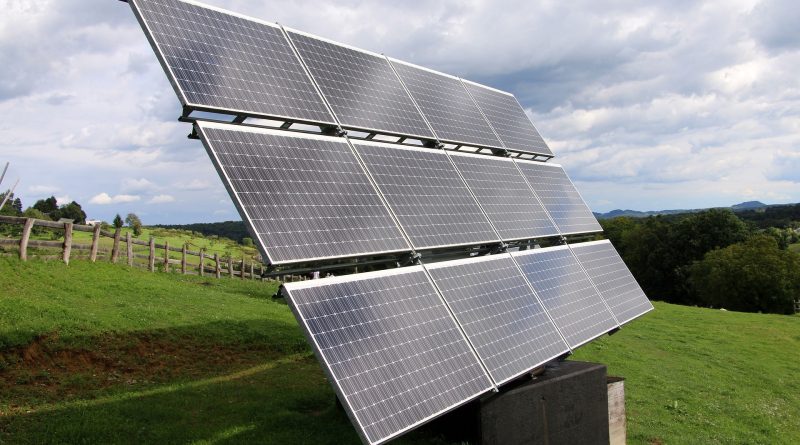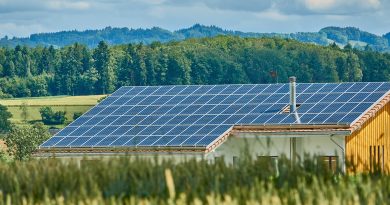What are the aims and objectives of a solar home system?
As the world becomes more environmentally conscious, the demand for sustainable energy solutions is on the rise. Among the many renewable energy options available, solar power has emerged as a clean and efficient source of electricity. One of the key applications of solar energy is in the form of solar home systems, which aim to provide sustainable electricity to households. In this blog, we will explore the aims and objectives of a solar home system and its significance in the transition to clean energy.
Table of Contents
The Aim of a Solar Home System
The primary aim of a solar home system is to provide households with a reliable and sustainable source of electricity. Traditional power grids often face challenges in remote areas, making it difficult for households to access electricity. Solar home systems aim to bridge this gap by harnessing the power of the sun to generate electricity. By installing solar panels on rooftops or in open areas, households can generate their own electricity, reducing dependence on fossil fuel-based power sources.
In addition to providing electricity, solar home systems also aim to improve the standard of living for households. Access to electricity enables better lighting, increased productivity, and improved education opportunities. For households in remote areas, reliable electricity can bring about transformational changes, enabling economic growth and development.
The Objectives of a Solar Home System
There are several key objectives that a solar home system aims to achieve:
1. Energy Independence
One of the primary objectives of a solar home system is to provide households with energy independence. By generating their own electricity, households are no longer reliant on the grid and are less affected by power outages or fluctuations in energy prices. This enhances the resilience of households, allowing them to have a consistent and reliable source of electricity even in remote areas.
2. Environmental Sustainability
Solar home systems contribute to environmental sustainability by reducing carbon emissions. Unlike traditional energy sources such as coal or natural gas, solar power does not produce greenhouse gases. By switching to solar energy, households can significantly decrease their carbon footprint and contribute to the fight against climate change.
3. Financial Savings
Another objective of a solar home system is to provide households with long-term financial savings. While the initial investment for installing a solar home system can be high, the operational costs are significantly lower compared to traditional power sources. The use of solar energy eliminates or reduces monthly electricity bills, allowing households to save money in the long run.
4. Increased Energy Access
Solar home systems aim to increase energy access, particularly in remote or off-grid areas. These systems are designed to be modular and scalable, allowing them to be easily installed and expanded as per the needs of the households. By reaching areas that are not easily accessible by traditional power grids, solar home systems play a crucial role in bringing electricity to underserved communities.
The Significance of Solar Home Systems
Solar home systems have a significant impact on both individuals and society as a whole:
– Improved Quality of Life: Solar home systems provide households with a reliable source of electricity, enhancing their quality of life. Access to electricity enables better lighting, powering appliances, and charging electronic devices, thus improving productivity and education opportunities.
– Energy Security: Solar home systems provide a secure and independent source of electricity, reducing reliance on the grid and enhancing energy security for households.
– Environmental Protection: By harnessing solar energy, solar home systems help reduce greenhouse gas emissions and mitigate climate change, contributing to a cleaner and more sustainable environment.
– Economic Growth: Solar home systems stimulate economic growth in remote areas by enabling small businesses to operate, increasing job opportunities, and attracting investments in the renewable energy sector.
Conclusion
Solar home systems play a vital role in achieving sustainable and reliable electricity access for households. By aiming to provide energy independence, environmental sustainability, financial savings, and increased energy access, solar home systems have the potential to bring about significant positive changes in the lives of individuals and communities. As the world continues to shift towards clean energy solutions, solar home systems will play an increasingly important role in achieving a greener and more sustainable future.
Transform your home with solar power! Discover the objectives of a solar home system with SolarClue®. Embrace sustainable living and power your home efficiently.
Frequently Asked Questions
The primary aims include harnessing solar energy to power homes, reducing reliance on the grid, and promoting sustainability.
By utilizing solar energy, a solar home system reduces dependence on conventional power sources, leading to increased energy efficiency.
While it may significantly reduce bills, complete elimination depends on factors like energy consumption and local policies.
Solar home systems reduce carbon footprints, decrease reliance on fossil fuels, and contribute to a cleaner, greener environment.
Homes equipped with solar systems are often more attractive to buyers, offering potential financial benefits and a commitment to sustainability.
Yes, many solar solutions are designed for easy integration into existing homes, promoting accessibility and versatility.
Regular cleaning of solar panels and occasional checks by professionals are typically sufficient for maintenance.
While energy production may decrease, solar home systems can still generate power on cloudy days, thanks to advanced technology.
Many regions offer incentives, tax credits, or rebates to encourage the adoption of solar home systems.
The capacity of the solar system determines its ability to power appliances. Systems can be tailored based on individual energy needs.




